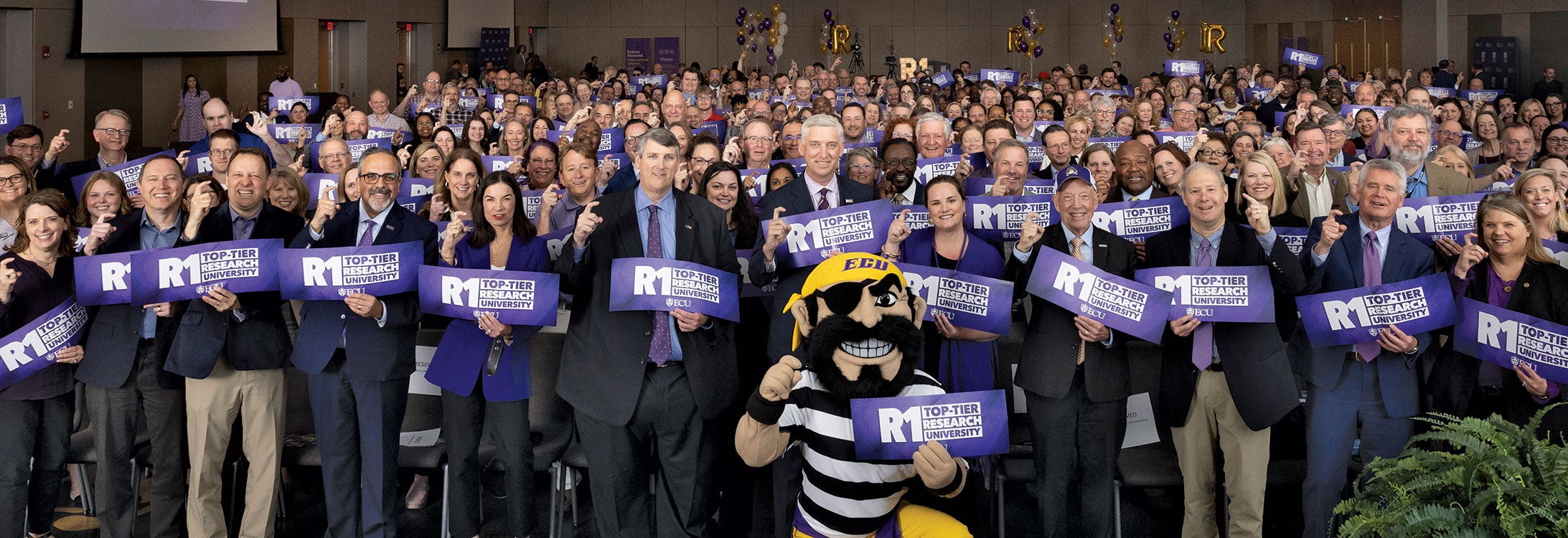Chancellor Philip Rogers on ECU’s new top-tier research designation
In February, the American Council on Education and the Carnegie Foundation for the Advancement of Teaching recognized ECU as a Research 1 university, a testament to the hard work, dedication and innovation of faculty, staff and students.
What is R1?
For more than 50 years, Carnegie has been categorizing institutions in the United States in terms of their mission, size and areas of focus so people who are interested in those institutions can get a feel for which ones best align with their goals. To achieve R1 status under its new guidelines, institutions must meet a threshold of $50 million in total research expenditures and award at least 70 research doctorates annually.
How exclusive is the R1 designation?
It comes with a lot of prestige. There were 3,941 institutions categorized by Carnegie this year, and just over 180 were named R1 institutions, so it puts us among the top 5% of research institutions in the United States.
What does R1 mean for ECU?
As an R1 university, ECU will see expanded opportunities for research, attracting top researchers and graduate students eager to contribute to cutting-edge discoveries. It boosts our ability to drive scholarly inquiry in the arts and creative endeavors, health sciences, engineering, education, coastal and marine studies, and many other fields that are critical to North Carolina and our world. It also reinforces our commitment to community-engaged research, ensuring our work continues to address the needs of our region, from educational attainment, rural health care and workforce development to technological advancement.
What does R1 mean for students?
It means we’re committed to a culture of discovery at all levels. ECU offers hands-on research opportunities to undergraduates as early as their first year, allowing students to work closely with faculty mentors on projects that shape industries, advance knowledge and improve lives. ECU graduates enter the workforce equipped with in-demand skills, ready to collaborate on teams that solve problems and bring innovative ideas to life.
How will this benefit our region and state?
Our mission as a university centers on improving the lives of the residents of eastern North Carolina and across the state. Research offers a significant return on investment by driving innovation, economic growth and the development of solutions to pressing societal challenges. There are many ways faculty-led, student-engaged research can impact the world. This designation allows us to attract more high-achieving faculty members and students who are committed to the region, who want to do their research here or get their degrees here and then use what they’ve learned to make a difference in their communities. More than anything, it shows we’re incredibly successful at meeting our mission of service and making a positive difference for our state.
